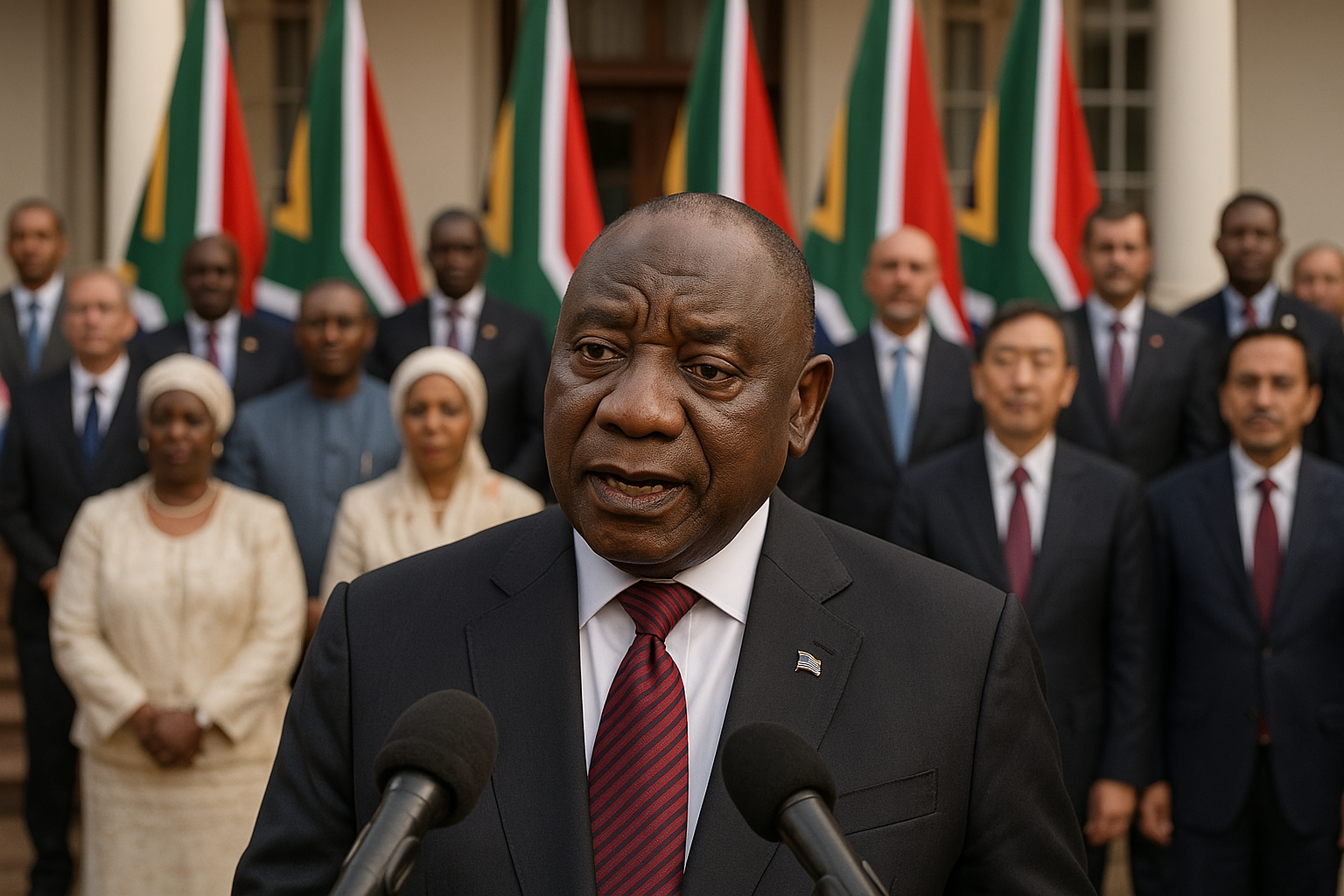SA's Empowerment Laws Are Not Unique but Remain Vital for Inclusive Growth, Says Ramaphosa
What sets South Africa’s approach apart, the President noted, is its flexibility and innovation—particularly through the introduction of the Equity Equivalent Investment Programme (EEIP).

- Country:
- South Africa
President Cyril Ramaphosa has reaffirmed the importance and legitimacy of South Africa’s empowerment legislation, asserting that while the country’s laws—especially the Broad-Based Black Economic Empowerment (B-BBEE) framework—are distinctive in their implementation, they are by no means unique globally. His remarks come amid renewed public debate and media scrutiny of empowerment policies aimed at addressing historical economic exclusion stemming from apartheid.
In his latest weekly newsletter, the President emphasized that similar frameworks, under various names such as “indigenisation” or “localisation” measures, are operational in several emerging economies like India, Nigeria, Indonesia, Zambia, Brazil, and Malaysia. These nations, having faced colonial or racially discriminatory economic systems, have also instituted policies requiring multinational corporations to allocate equity stakes or otherwise invest in local economies as a prerequisite to operating within their jurisdictions.
“These empowerment frameworks are not designed to deter investment, as critics often suggest,” said Ramaphosa. “On the contrary, many investors accept and even embrace such conditions as they lead to greater inclusiveness, social buy-in, and a wider customer base.”
A Distinctly South African Approach: Equity Equivalent Investment Programme (EEIP)
What sets South Africa’s approach apart, the President noted, is its flexibility and innovation—particularly through the introduction of the Equity Equivalent Investment Programme (EEIP). This mechanism allows multinational corporations whose global policies restrict them from direct equity transfer to comply with B-BBEE through alternate avenues such as investments in skills development, enterprise incubation, and socio-economic upliftment.
“EEIP is not a loophole or a concession,” Ramaphosa stressed. “It’s a structured, law-backed instrument that aligns with our developmental goals while accommodating global business practices.”
The EEIP has garnered participation from global giants such as Microsoft, Amazon, IBM, JP Morgan, and leading automakers like Toyota, BMW, and Volkswagen. A notable example cited by Ramaphosa was Microsoft’s R1.32 billion, decade-long investment into South Africa’s skills and 4IR (Fourth Industrial Revolution) ecosystem.
“These initiatives have helped build a pipeline of youth- and women-owned businesses, accelerated black enterprise development, and contributed directly to government priorities like employment creation and digital transformation,” said the President.
Addressing Criticism and Misconceptions
In addressing criticism, Ramaphosa took a firm stance against narratives that frame empowerment compliance as an obstacle to growth. “We must move away from the false choice between transformation and economic expansion,” he stated. “Our aim is not to punish business, but to build a more inclusive economy in which prosperity is broadly shared and sustainable.”
He also highlighted that EEIP initiatives undergo stringent government oversight and must demonstrate alignment with national economic policies. Furthermore, these initiatives are required to show measurable and broad-based impacts—not just token gestures.
Empowerment as a Catalyst for Future Readiness
Ramaphosa linked the continued relevance of empowerment policies to South Africa’s future competitiveness. As global economic paradigms shift—toward advanced manufacturing, renewable energy, AI, and digital services—he argued that the country must proactively cultivate inclusive industrial capacity.
“We are living in a time of technological transformation, and our empowerment laws help ensure that South Africa does not remain on the periphery of this evolution. We must harness the potential of our entire population, not just a privileged few,” he said.
By integrating empowerment into national policy, the government aims to simultaneously achieve economic growth and justice. “Transformation remains a non-negotiable. It is both a moral and an economic imperative.”
Looking Ahead: Enabling Growth Through Transformation
President Ramaphosa concluded his message by urging all sectors of society—government, business, and civil society—to continue supporting empowerment laws. He emphasized that transformation and competitiveness must not be viewed as opposing forces but as mutually reinforcing strategies.
“Let us reframe B-BBEE compliance not as a box-ticking exercise or an impediment, but as an investment in South Africa’s long-term stability, prosperity, and global relevance,” he said.
With continued global participation through initiatives like the EEIP and sustained domestic support, Ramaphosa remains optimistic that empowerment laws will help shape a resilient and inclusive South African economy for generations to come.
ALSO READ
U.S. Steel's Golden Share Twist: National Security vs. Foreign Investment
NZ Reforms Foreign Investment Rules to Boost Growth, Jobs and Productivity
Surge in Foreign Investment Boosts Japanese Stocks
India Accelerates EV Ambitions with New Foreign Investment Scheme
Stabilizing Foreign Investment Trends Resurface Amid Indian Market Strength










